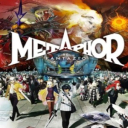Exploring Identity And Memory In BioShock Infinite
Nov-09-2024
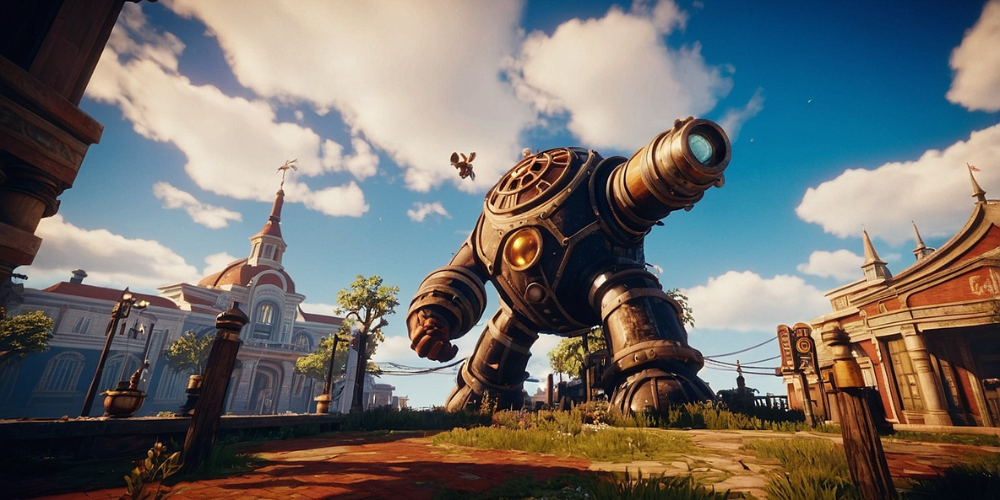
As I immersed myself in the world of BioShock Infinite, I found myself entangled in a rich tapestry of identity that spoke to me on a personal level. The game invites players into a realm where characters grapple with their pasts and the essence of who they are. I was particularly struck by how Booker DeWitt, the protagonist, navigates his own complex identity, constantly haunted by memories he cannot fully grasp. It felt as though I was peering into the foggy recesses of my own mind, pondering what truly shapes us as individuals.
The Prison of Memory
The game presents memory as a double-edged sword. For Booker, memories serve both as a refuge and a prison; they provide glimpses into his past while simultaneously confining him within the shadows of his choices. As I ventured through Columbia, I often found myself reflecting on my own memories. How do our past experiences mold our identities? Are we forever bound to repeat the mistakes that haunt us?
Columbia: A Reflection of Self
The city of Columbia acts as a character in its own right, representing ideals and a national identity that is both alluring and oppressive. The vibrant architecture and hopeful propaganda contrast sharply with the underlying social injustices. Engaging with characters around me, I questioned the extent to which my own surroundings influence my identity. Do I embody my environment, or can I shape it to reflect my true self?
Elizabeth: The Symbol of Potential
During my journey, Elizabeth emerged as a beacon of potential and a representation of the choices that define us. Her ability to open tears into alternate realities resonated deeply with my understanding of possibilities. Each time she opened a tear, I felt a pang of nostalgia and wonder; it challenged me to consider how different choices could create entirely different versions of myself. In Elizabeth, I saw the hope that lies in every decision we make.
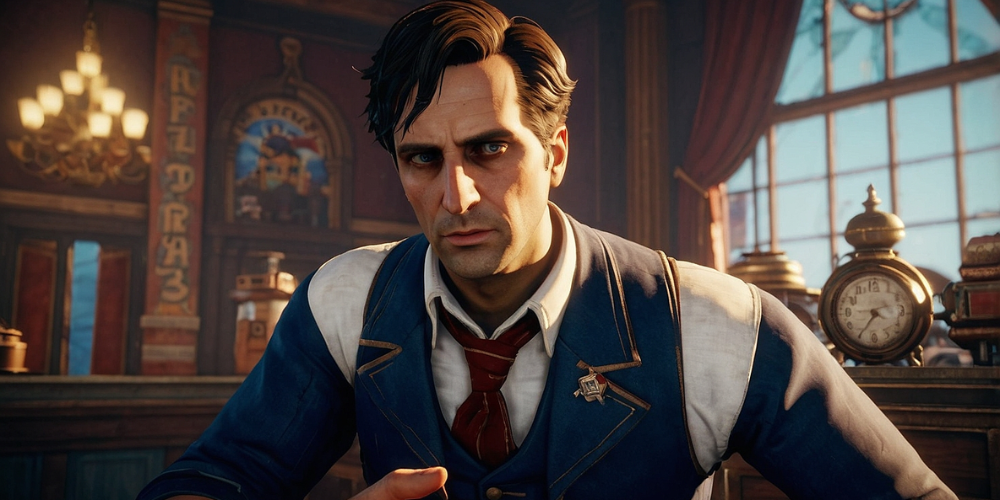
Confronting Guilt and Redemption
As I delved deeper into Booker’s backstory, I couldn’t help but confront my own feelings of guilt and the quest for redemption. The weight of past decisions bore down heavily upon me, mirroring Booker’s own struggles. The emotional burden of regret shaped my understanding of what it means to find atonement and how that quest influences one’s sense of identity. Would I be able to forgive myself for past mistakes, or would they eternally shadow my existence like they did for Booker?
The Cycle of Identity
The theme of cycles intrigued me. Columbia presented the idea that identities can be cyclical – shaped by the same events and choices replayed through history. As I explored the city and uncovered its dark history, I was drawn to the realization of patterns within my own life. Are there moments I find myself repeating, perhaps guided by the unyielding nature of my own identity? This thought lingered like a ghost, compelling me to reevaluate my own decisions.
Multiple Realities and Identity
As I accompanied Elizabeth through various realities, each one peeled back layers of understanding regarding identity. These alternate versions of our protagonist made me ponder the concept of the self. Which version of myself is the 'real' one? The choices I make today create a branching path of identities, each with its own memories and experiences. I felt a profound connection to this idea, as if I were weaving through my own possibilities.
Memory and Trauma
The haunting memories of trauma echoed within the narrative of BioShock Infinite, resonating swiftly with my experiences. Each character carries remnants of their past, often manifested in painful and tangible ways. As I unraveled the story, I was left grappling with the trauma that shapes identity. How do we navigate the landscape of our memories while fostering growth? I became acutely aware of the fragility of memory and its power to evoke pain or provoke resilience.
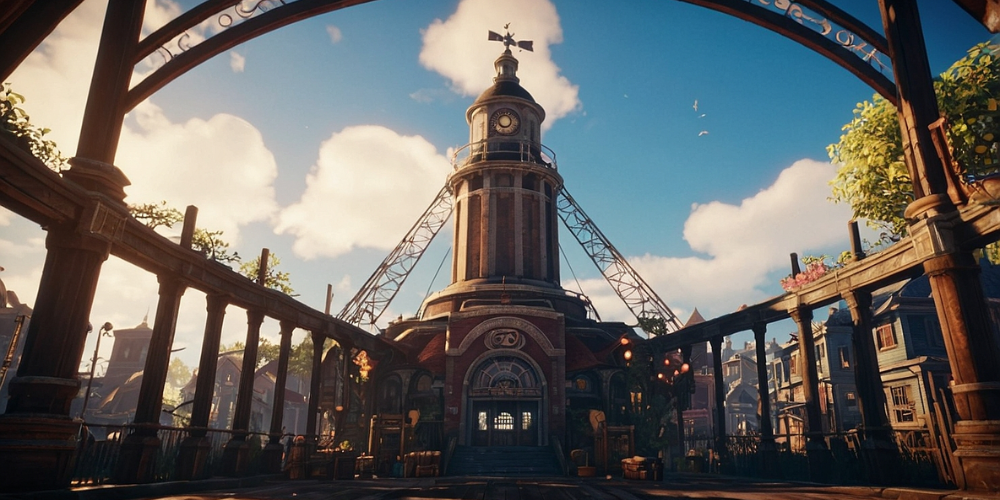
The Power Of Choices
Throughout my playthrough, I encountered moments that felt pivotal in shaping not only Booker’s identity but mine as well. Each decision added weight to my understanding of how choices mold us. The implications of my actions constantly challenged me, highlighting the moral complexities that accompany identity formation. I found myself pondering the morally ambiguous paths that we might take in pursuit of what we believe is right or just.
National Identity and Individuality
As Colombia unveiled its roots in nationalism, I felt a pang of recognition regarding my struggle with collective identity. The clash between personal ideals and societal expectations rose to the forefront. How much of my identity is shaped by my cultural background, and how much can I curate it independently? The game pushed me to confront the balance between embracing my heritage and forging my own unique path.
The Role of Relationships
The dynamics between Booker and Elizabeth played a crucial role in their identity exploration. Their relationship acted as a mirror, reflecting not only their individual struggles but also how connections with others shape who we are. As I navigated this bond, I was reminded of my own relationships—how they can elevate or diminish our sense of self. We often blend our identities with those we care for, coloring our experiences and perspectives in unexpected ways.
Reality and Illusion
The line between reality and illusion blurred throughout my experience in Columbia. With the frequent manipulation of time and space, I questioned the authenticity of what I was witnessing. How much of my identity is constructed from the illusions we all believe? Just as Columbia exists in a nuanced interplay of truths and misconceptions, I began to investigate the illusions I maintained within my life.
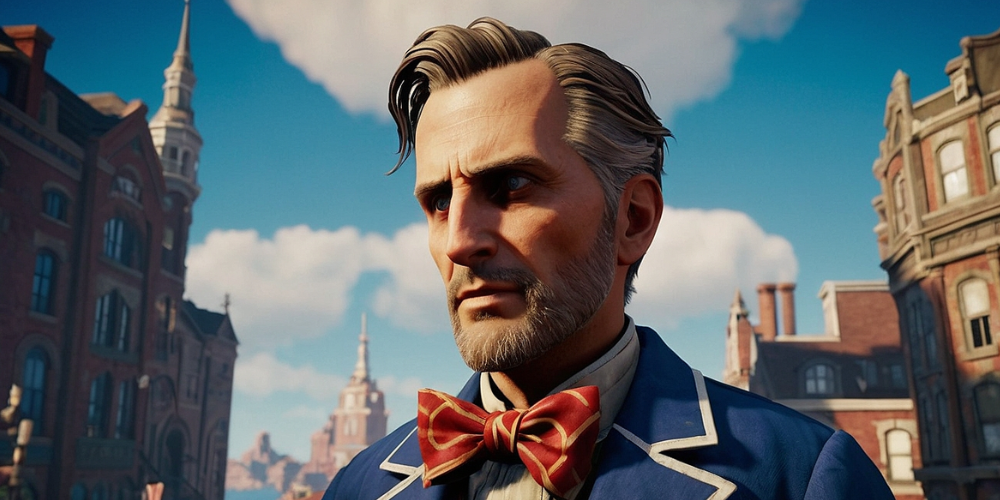
Understanding A Legacy
Throughout the journey, the concept of legacy emerged profoundly, forcing me to reflect on the marks we leave on the world. The characters’ legacies influenced their current identities; each had a history that shaped their actions and reactions. I found myself contemplating what legacy I am building. What will I leave behind? The thought was daunting yet liberating, framing my personal identity as part of a wider continuum.
Forging New Identities
In the backdrop of Columbia, I discovered that identities are not static; they are malleable and can be forged anew. Just as Booker and Elizabeth sought to dismantle the burdens of their pasts, I realized that the power to reshape my narrative lies within my hands. Every experience, relationship, and choice contributes to the multifaceted nature of self. The potential to redefine oneself, as demonstrated through the duo’s journey, became an inspiring movement in my own life.
Finding Closure
At the culmination of the story, the quest for closure became palpable. Booker’s attempts to reconcile his past demonstrated a universal desire for understanding. As I navigated the emotional depths of the characters, I acknowledged the importance of finding peace within oneself. The pursuit of closure doesn’t signify an end but rather an evolution of identity, an acknowledgment of history while stepping forward into new beginnings.


